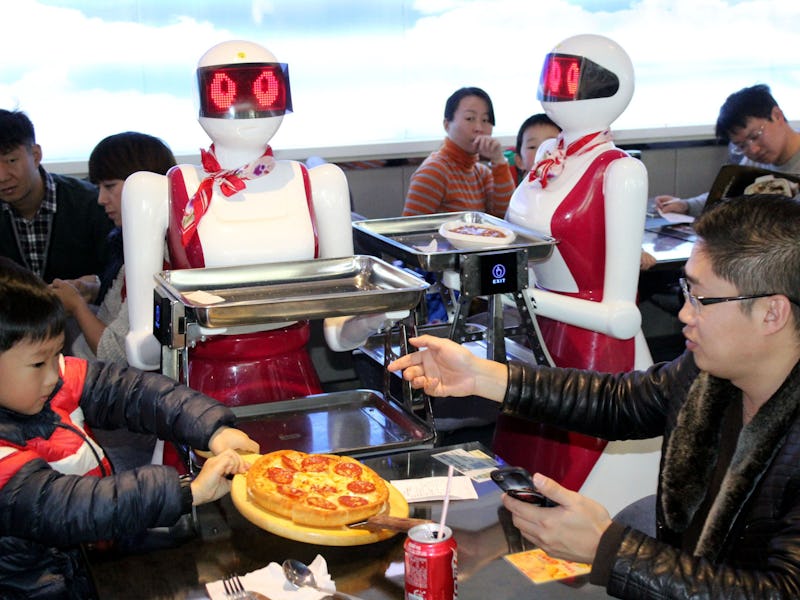How Will Humans Handle the Boredom That Comes with A.I. Taking Their Jobs?
Rice professor Moshe Vardi wonders about the philosophical and practical implications of machines taking all middle class jobs in the next 30 years.

In the 2015 film Ex Machina, Nathan, the coding genius who’s created an almost-human A.I. named Ava, muses about the nature of robots. He says, “I don’t see Ava as a decision; I see it as an evolution.”
Rice University computer scientist and director of Rice’s Ken Kennedy Institute for Information Technology, Moshe Vardi, thinks maybe this progress is happening a little too quickly. He’s worried that — with, in his estimation, A.I. doing all human labor by 2045 — humankind will be left with too much spare time on its hands. He’s also concerned the global economy won’t be able to handle all the unemployment. Machines are taking away middle class jobs, and he believes that will increase economic inequality.
This Sunday, the highly distinguished researcher and fellow of the American Association for Artificial Intelligence will present “Smart Robots and Their Impact on Society” to his colleagues at the annual meeting of the American Association for the Advancement of Science in Washington, D.C. He’s spoken on this before at other places like Oxford University’s 2015 Ada Lovelace Symposium and the Kansas City Federal Reserve Bank’s symposium in Jackson Hole, Wyoming in 2014.
In 2012, Vardi addressed the topic in an Atlantic article, “The Consequences of Machine Intelligence: If machines are capable of doing almost any work humans can do, what will humans do?” and again in the Pacific Standard’s 2015 piece, “The Future of Work: But What Will Humans Do?” He clearly wants to know what the hell we’ll all be doing with ourselves in the future.
“I believe that work is essential to human well-being,” he said in a release, getting philosophical about it. “Humanity is about to face perhaps its greatest challenge ever, which is finding meaning in life after the end of ‘In the sweat of thy face shalt thou eat bread.’”
But this all seems a bit like fear mongering, a little old school, a little Cloud Atlas. Are we all just going to turn into monkeys when the machines are driving us around and tying our shoes? And that leads us to wonder, will there be a return to Velcro in 2045? Clearly there are things we cannot anticipate. Velcro was the future in the 1980s, and we’re back to tying our Jordans by hand.
In the Pacific Standard article, he starts out by referencing driverless cars and how quickly that technology progressed. They’re already on the roads right now. He’s right, in many ways we are already in “the future.” Some of us love driving — maybe humans behind the wheel will continue to be an option. Maybe those drivers will be seen like the Amish. People still ride horses.
He’s really worried that leisure isn’t natural for humans. Which is also kind of true. However, just like we adapted to the sedentary internet life and fast food, it’s certain humans can adapt to just about anything. If we are smart enough to create a better version of ourselves, can’t we also find something to do with Mondays when we don’t have jobs? Like take a nature walk, learn to play the flute, or finally start working on that zine we’ve been planning all these years?
He’s not the only one scared of the evil robot revolution. He’s got geniuses like Elon Musk and Stephen Hawking biting their nails alongside him. Are we going to end up bored and stupid? Are our brains moving faster than our hearts? These A.I. will definitely move more quickly than us sad sacks of flesh. But Vardi, there’s always the hope that another massive economic downturn halts all progress and we have to start all this A.I. research up again in 30 years. No one knows the future. We’ll just have to sit here, watch cars drive us around as we poke at our iPhones, and wait to see.